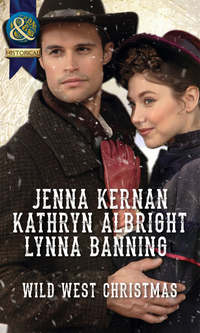Wild West Christmas: A Family for the Rancher / Dance with a Cowboy / Christmas in Smoke River

Добавить В библиотекуАвторизуйтесь, чтобы добавить
Добавить отзывДобавить цитату
Wild West Christmas: A Family for the Rancher / Dance with a Cowboy / Christmas in Smoke River
Вы ознакомились с фрагментом книги.
Для бесплатного чтения открыта только часть текста.
Приобретайте полный текст книги у нашего партнера:
Всего 10 форматов
Авторизация